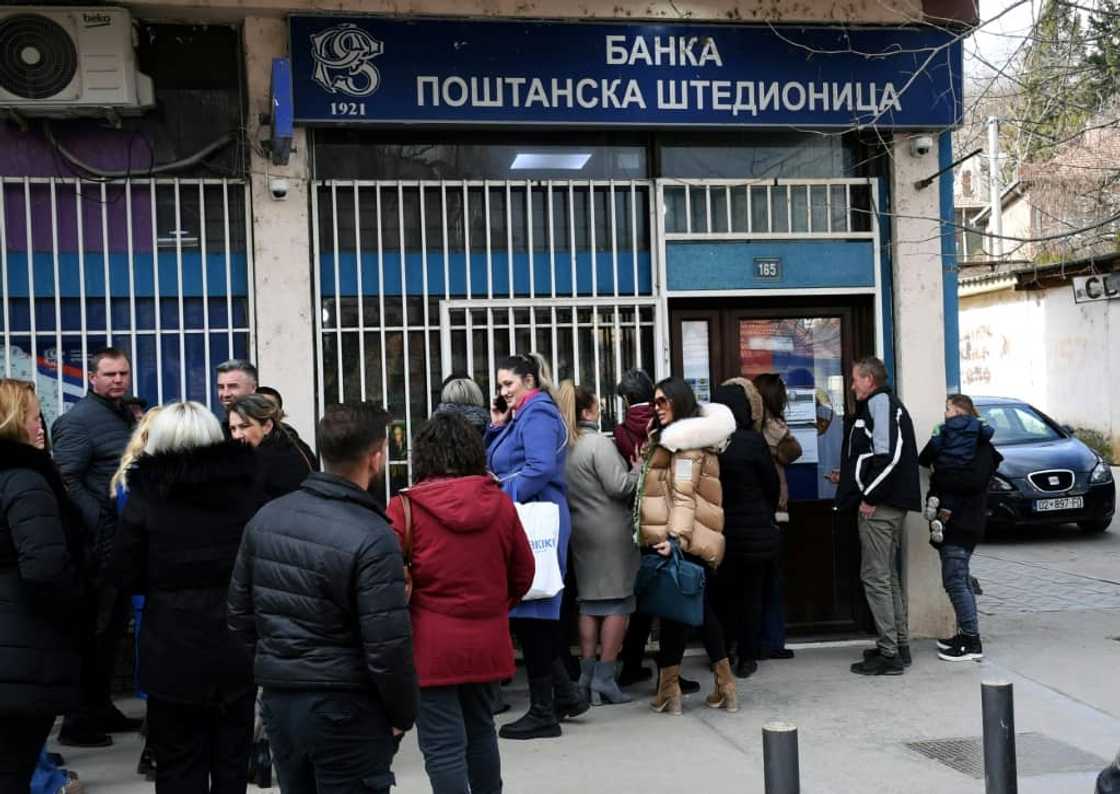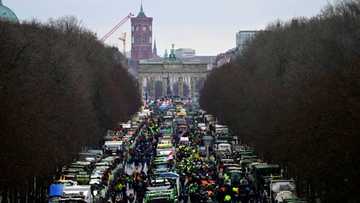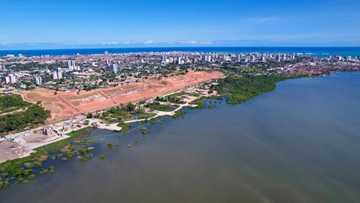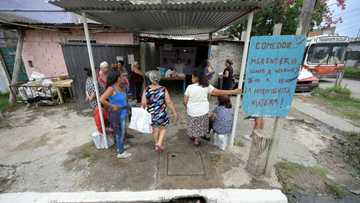Kosovo's Serbs hit by lines, limited withdrawals after currency ban

Source: AFP
Long lines snaked around banks in northern Kosovo on Wednesday, as ethnic Serbs waited to receive salaries and pensions in limited tranches following a government regulation targeting Serbia's dinar currency.
The disruption comes weeks after a new rule entered into force in Kosovo on February 1 that made the euro the only legal currency for payments in commercial transactions and effectively banned the use of the dinar.
On Wednesday, Kosovo's Serbs working for government institutions in Serbia and pensioners were set to receive salaries in northern Kosovo, where many in the community are dependent on the payments.
Worries have been mounting for days over fears that cash was running short in the area, following the blocking of two deliveries of dinars after officials stopped cars transporting the currency at the border.
Serbia's central bank said the shipments were set to pay salaries, pensions, social benefits and other payments to Serbs in Kosovo.
On Wednesday, account holders were only able to withdraw limited amounts of dinars, according to an AFP reporter on the ground, usually in tranches of 5,000 to 10,000 ($46 to $92).
"It is most likely the dinar will be abolished because that is Pristina's position. What are we left with?" one pensioner told AFP, speaking on condition of anonymity.
Others said they would be forced to cross the border and travel to Serbia to collect their salary in full.
"Tomorrow, I plan to go to Raska and pick up my salary there," said Milica Ivanovic, a 25-year-old working at a Serbian government institution in northern Kosovo, referring to a town in southern Serbia.
"I can afford it but there are others who can't," she added.
Rising tensions
Kosovo's roughly 100,000-member Serb community has held tight to the dinar since a brutal late-1990s war between Serbia and ethnic Albanian insurgents saw Serbian troops and government personnel withdraw from the breakaway province.
"I don't think there is a Serbian family in Kosovo that is not affected by this decision," Aleksandar Rapajic, who works for the Advocacy Center for Democratic Culture in Kosovo's northern city of Mitrovica, told AFP.
"The only effect this decision has is to make life miserable for the Serbian community and to make it difficult to send money from Serbia," he added.
The move has seen already tense relations between Serbia and Kosovo inflamed.
Earlier this month, Serbia's President Aleksandar Vucic and Kosovo's Prime Minister Albin Kurti sparred over the new regulation during an emergency meeting at the UN Security Council in New York.
Kosovo officials have introduced a three-month transitional period, allowing time to resolve issues.
Despite criticism from several Western countries, Kosovo's government has continued to defend the regulation.
"Money cannot come across the border in bags, as it cannot in any democratic state, but it can come through bank accounts, withdrawn in euros," said Kurti earlier this month.
Serbia has never acknowledged Kosovo's 2008 declaration of independence, with the rivals regularly locked in fierce disagreements over bureaucratic matters in the former breakaway province, such as a recent spat over licence plates.
Kosovo adopted the euro as its currency in 2002, despite not being a formal member of the eurozone or the European Union.
The currency regulation follows a tumultuous year in Kosovo that saw an armed standoff between Serb gunmen and police at a monastery near the Serbian border in September. At least four people were killed.
Source: AFP




